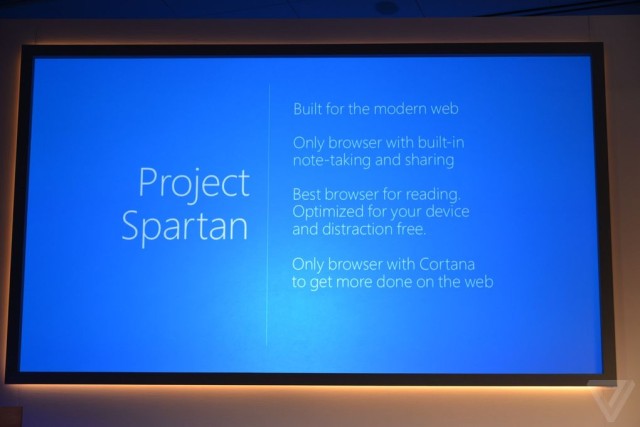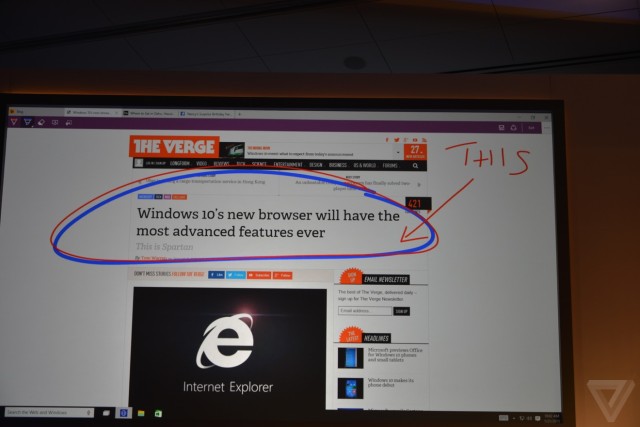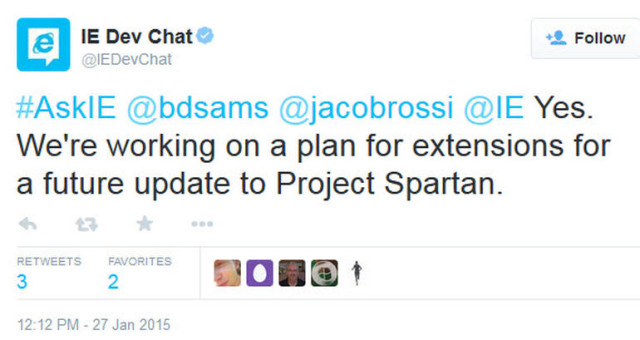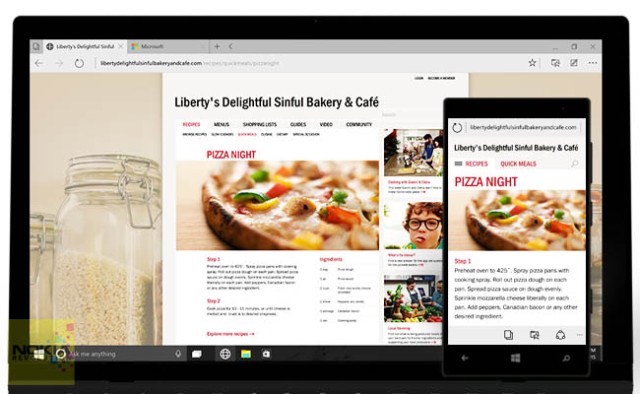At an event in Redmond, Washington a couple of weeks ago, Microsoft unveiled a new concept browser, code-named Project Spartan (no, it has nothing to do with Leonidas from the movie 300) as the highlight of its coming out party for Windows 10.
Never mind the fact that Internet Explorer has a far bigger user base than Chrome (Yes it is, believe it or not), Microsoft is gunning for Google. And in a struggle to escape its legacy as the chief embodiment of a bygone era of PCs, Windows 10 and Project Spartan mark the biggest step towards the company’s goal for the modern “one Windows” vision for a unified experience, hoping to blur the line between desktop and mobile.
WHAT TO EXPECT
The company has focused on three key features for the upcoming browser.
- Demonstrated heavily in the demo, was the inking supports that lets user annotate web pages (simply speaking – letting you draw directly on the webpage, point to particular items, add comments, etc.) and sync all notes across OneDrive (much like in Office documents). And this features makes ton of sense, given the company’s focus on the stylus for its Surface line up.
- A new reading mode (similar to Apple’s Safari) that strips away the clutter of a page and formats it into something more readable, like a book. In addition, a reading list feature will be integrated within the browser similar to Pocket or Instapaper, which will save articles offline and synced across the cloud.
- Complete Cortana (the Siri and Google Now equivalent of Windows Phone) integration, which will pop up on relevant pages with useful suggestions. For example if you’re on a restaurant’s webpage, Cortana will pull up direction, hours and contact info, or if you type “Delta”, it’ll know and show you your flight details.
In addition, there had been talk among various sources whether the company plans for extensions for a future update to Project Spartan – which the IE team members confirmed during an #AskIE Twitter chat post launch event.
THE GAME IS ON!
Long the world’s top browser maker, Microsoft still want people to use IE, which is mostly a pain to use for casual users, but a newer, better, more lightweight browser would eliminate the need to redesign IE to work across multiple platforms. And the company has good reason to double its efforts. While apps have become one of the primary ways people interact with their smartphone, a browser still remains essential for PC users – view embedded websites, flash games, watch videos, or go shopping.
And Microsoft isn’t alone among the browser race, with Mozilla’s Firefox – whose mission a decade ago was to disrupt IE’s dominance – is posed by more challenges by Android and iOS devices.
CONCLUSION
With a real-time annotation feature, built-in PDF support, reading list, reading mode, updated rendering engine and of course Cortana, Project Spartan looks like a nice step forward and could help Microsoft break free from IE’s legacy. Microsoft didn’t say whether it will replace IE, or run alongside it, but pointed out that it will be available first to early testers running Windows 10 Insider versions later this year.
By – Raunaq Singh







































